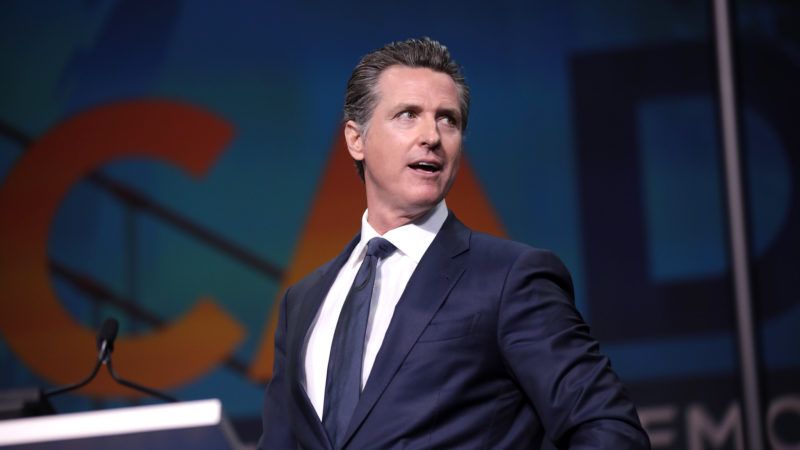California Gov. Gavin Newsom Issues Surprise Retraction of Controversial Stay-at-Home Order
The governor's order had banned outdoor dining and forbade Californians from socializing with members outside their household.

In a surprise move, California public health officials are lifting a controversial stay-at-home order. The rule had forbidden people in affected regions from socializing with members outside their households and imposed a raft of restrictions on businesses in much of the state.
"California is slowly starting to emerge from the most dangerous surge of this pandemic yet," said California Health and Human Services Secretary Mark Ghaly in a press release today. "Californians heard the urgent message to stay home when possible and our surge after the December holidays did not overwhelm the health care system to the degree we had feared."
"Today we can start to see some real light at the end of the tunnel," said Gov. Gavin Newsom at a press conference this afternoon.
The stay-at-home order, issued in early December, divided the state into five regions. The rules snapped into effect whenever a region's hospital intensive care unit (ICU) capacity fell below 15 percent.
Where it was in effect, the order banned restaurants from operating outdoor dining and kept personal services businesses, such as nail salons, from operating at all. Retail businesses were required to operate at 20 percent capacity.
Before its snap repeal, the order was in effect in three regions: Southern California, the San Joaquin Valley, and the Bay Area. It had been lifted in the Sacramento region and had never gone into effect in the Northern California region. At his press conference, Newsom shared state projections showing that all regions of the state would have more than 15 percent ICU capacity by February 21.
Those restrictions were more severe than the state's prior Blueprint for a Safer Economy. That system put counties into one of four color-coded tiers, each with different conditions for which businesses were allowed to open and at what capacity they could operate. But even in the most restrictive "purple" tier, outdoor dining was allowed.
The regional stay-at-home order sparked widespread resistance. Many restaurants continued to keep their outdoor dining patios open in protest. Sheriffs departments across the state said they wouldn't enforce the order. Local governments and business associations threatened or filed lawsuits. The order also boosted efforts to recall Newsom.
The sudden lifting of the order, which leaked Sunday afternoon, came as a surprise to state legislators, many of whom learned the news from Twitter.
People: Is it true? CA is lifting the shelter-in-place?
Me: Huh? I haven't heard.
People: It's all over Twitter.
Me: Oh.
People: Aren't you a state official? Shouldn't you be in the know?
Me: *sigh* ????♂️Where to begin… pic.twitter.com/hn1LhIeR6g
— Evan Low (@Evan_Low) January 25, 2021
If you think state legislators were blindsided by, and confused about, the shifting & confusing public health directives, you'd be correct.
If you think we have been quiet about it in Sacramento, you'd be wrong.
— Laura Friedman (@LauraFriedmanCA) January 25, 2021
The snap reversal of the order, coming on the heels of intense criticism and non-compliance, has sparked accusations that the governor was bending to political considerations.
A new day, a new erratic COVID rule.
Californians want to follow the science. Instead we're forced to follow a governor who decides on a whim the fate of millions of Californians while refusing to release the data behind his contradictory and arbitrary decisions.
It's absurd. https://t.co/QaomyxMuAz
— Kevin Faulconer (@Kevin_Faulconer) January 25, 2021
The state will now return to the four-tiered "blueprint" system. All but three of the state's counties are currently in that most restrictive "purple" tier, although Newsom said in his press conference that this would be reevaluated tomorrow.
Counties are allowed to set more restrictive reopening conditions than what the state mandates. It will be a while before the precise practical effects of today's decision are clear.
Rent Free is a weekly newsletter from Christian Britschgi on urbanism and the fight for less regulation, more housing, more property rights, and more freedom in America's cities.


Show Comments (158)